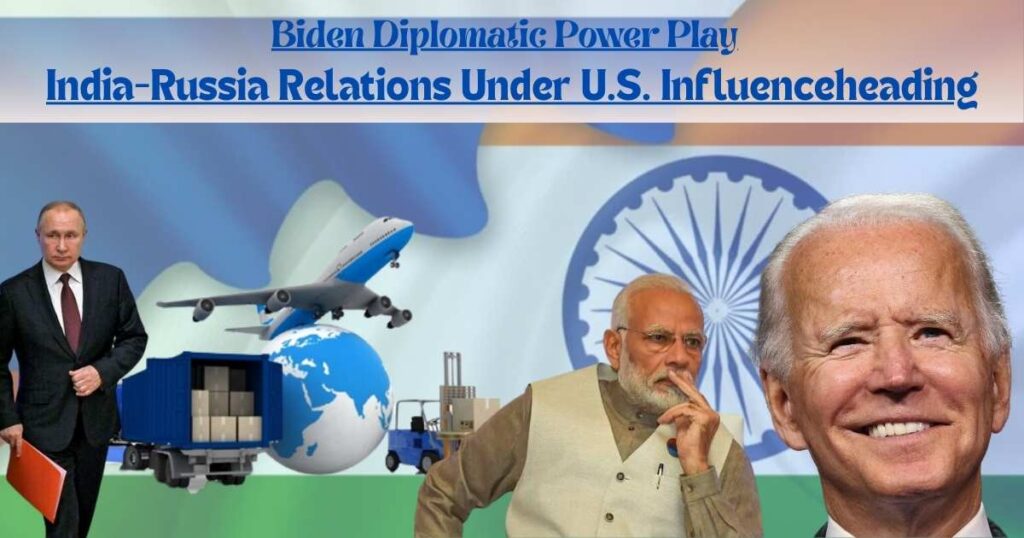How the U.S. Blocked a Key India-Russia Agreement: A Diplomatic Power Play

How U.S. Influence is Shaping India-Russia Relations: A Diplomatic Power Play
India-Russia: A Game-Changing Visit with Unforeseen Hurdles
India’s Prime Minister, Narendra Modi, recently embarked on a high-stakes diplomatic tour, visiting the Russian Federation and Austria. While his stop in Austria was noteworthy, it’s the Russian leg of his journey that has garnered global attention. The Russian government lauded Modi’s visit as transformative, bestowing upon him their highest civilian honor. However, a pivotal logistics agreement between India and Russia remained unsigned, reportedly due to U.S. intervention. This article delves into the implications of this diplomatic move and its impact on India-Russia relations.

India-Russia Relations: A Historic Bond Tested by Modern Geopolitics
In 2016, India and the United States signed the Logistics Exchange Memorandum of Agreement (LEMOA), allowing mutual access to military bases. This agreement was a cornerstone of enhanced Indo-U.S. cooperation. Since then, India has inked similar agreements with France, South Korea, Japan, and Australia. Yet, despite historical ties, a comparable agreement with Russia has not materialized. The lack of a Reciprocal Exchange of Logistics Support (REOLS) agreement with Russia raises questions about the U.S.’s influence over India’s strategic choices.
The REOLS Agreement: Thwarted by U.S. Pressure?
Russia had prepared a draft for a logistics agreement akin to LEMOA, which many expected to be signed during PM Modi’s visit. However, the agreement remains in limbo, allegedly due to pressure from the United States. India appears to be treading carefully to avoid antagonizing the U.S., its key strategic partner. The absence of this agreement has led to speculation that Washington’s influence may have played a significant role in India’s decision. How does this diplomatic balancing act impact India’s global standing?
Trade and Energy: Strengthening Ties Amid Diplomatic Challenges
Despite the setback with the logistics agreement, India and Russia continue to strengthen their trade and energy partnerships. Bilateral trade has surged to $65 billion, with an ambitious target of $100 billion by 2030. This growth is driven largely by Russian crude oil exports to India. Additionally, Russia plans to construct six nuclear reactors in India, solidifying the energy alliance. The prospect of a substantial uranium supply deal underscores the deepening ties between the two nations. Will these developments offset the diplomatic tension caused by the unsign REOLS agreement?
Austria Visit: A Strategic European Engagement
PM Modi’s visit to Austria, a significant EU member, underscores India’s broader diplomatic strategy. Although Austria is not a NATO member, its role in the EU is pivotal. India seeks to secure a Free Trade Agreement (FTA) with Europe, and Austria’s support is crucial. The visit is part of India’s concerted effort to garner backing from EU nations like Germany, Poland, and Sweden. How essential is Austria’s endorsement in facilitating India’s FTA negotiations with the EU?

Conclusion: Navigating a Complex Geopolitical Landscape
PM Modi’s visit to Russia highlights the intricate dynamics of India-Russia relations amidst global geopolitical currents. While the logistics agreement with Russia remains unsigned, largely due to U.S. interference, the growing trade and energy ties signify a robust partnership. The strategic engagement with Austria further emphasizes India’s multifaceted diplomatic approach. As India balances its relationships with major powers, maintaining strong ties with both the U.S. and Russia presents a challenging yet crucial endeavor.
Engage with Us: What Are Your Thoughts?
- How do you perceive the impact of U.S. influence on India-Russia diplomatic relations?
- What are the long-term implications of the unsigned REOLS agreement for India’s strategic interests?
- How vital is Austria’s support in India’s pursuit of a Free Trade Agreement with the European Union?
We’d love to hear your thoughts. Share your opinions in the comments below!






